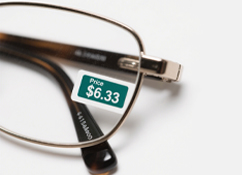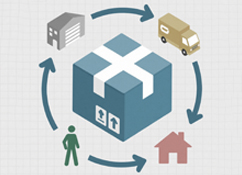Jobs Not Suitable for Poor Eyesight: 4 Key Categories + What to Know
Poor eyesight isn’t just about blurry vision—it comes with unseen challenges, especially when it comes to choosing a career. Many people worry their dream jobs (like being a soldier, surgeon, or professional athlete) might be out of reach due to vision issues. But which roles actually have strict vision requirements, making them a bad fit for those with poor eyesight? Let’s break it down.
4 Career Categories That Aren’t Ideal for Poor Eyesight
Not all jobs require perfect vision—but these four categories demand sharp eyesight to stay safe, efficient, and healthy.
1. Jobs Requiring Hours of Intense Focus on Small Details
These roles involve staring at tiny objects or screens for long stretches, putting extreme strain on your eyes. For people with poor eyesight, this constant effort can worsen existing vision issues (like myopia or astigmatism) and even cause irreversible eye damage over time. Examples include:
Lab researchers: Those who spend 6+ hours a day peering through microscopes to study cells, bacteria, or tiny samples.
Precision inspectors: Workers who check small parts (like electronics components, watch gears, or medical devices) for defects—missing even a tiny flaw can ruin a product or put users at risk.
Jewelry makers or watch repairers: Roles that require manipulating and examining ultra-small pieces (think: soldering a 1mm gemstone or fixing a tiny watch spring).
The problem? Even with corrected vision (glasses or contacts), the constant eye strain can lead to headaches, dry eye, or fatigue—and you’re more likely to make costly mistakes.
2. Jobs Needing Quick Reactions + Keen Situational Awareness
These careers rely on split-second decisions and the ability to spot small, fast-changing details in your environment. Poor eyesight slows down how quickly you process visual cues, which can lead to accidents, mistakes, or even danger for yourself and others. Examples include:
Police officers & SWAT team members: Needing to spot suspects in crowds, read license plates from a distance, or react to sudden movements (like a weapon) in low light.
Firefighters & EMTs: Having to navigate smoky buildings, read emergency labels on equipment, or assess injuries quickly—blurry vision could mean missing a trapped person or misreading a patient’s vital signs.
Professional athletes: Sports like baseball (catching a fastball), basketball (spotting a teammate’s pass), or soccer (tracking the ball in a crowd) require 20/20 vision or near-perfect corrected vision. Even a slight blur can throw off your game.
In these roles, slow reactions or missed details aren’t just bad for your career—they can be life-threatening.
3. Jobs Involving Long Hours of Driving + Precision Handwork
These roles combine two vision challenges: staying alert during long drives (where blurriness can cause accidents) and performing detailed physical tasks (where poor eyesight leads to errors). Examples include:
Long-haul truck drivers: Spending 8–10 hours a day on the road, needing to read road signs, spot pedestrians, or react to sudden traffic changes—especially at night or in bad weather.
Automotive mechanics: Fixing small engine parts (like spark plugs or wiring) or reading tiny labels on fluids—mistakes can break a car or cause it to malfunction later.
Electronics assemblers: Building smartphones, laptops, or circuit boards—soldering tiny wires or placing microchips requires seeing details smaller than a grain of rice.
Even with glasses, long drives can tire your eyes (leading to “road hypnosis” or slower reaction times), and precision tasks become frustrating (and error-prone) when you’re squinting to see.
4. Jobs Requiring Nonstop Reading, Writing, or Screen Time
These roles involve staring at text, documents, or screens for 8+ hours a day—constant eye strain that worsens myopia, dry eye, or eye fatigue for people with poor eyesight. Examples include:
Editors & proofreaders: Checking articles, books, or reports for typos, grammar errors, or formatting issues—missing a small mistake (like a misplaced comma) can damage a publication’s credibility.
Administrative assistants: Scheduling meetings, typing reports, or reading emails nonstop—screen glare and small font sizes add extra strain.
Librarians (cataloging roles): Sorting books, reading tiny call numbers, or digitizing old documents—tasks that require focusing on small text for hours.
While some of these roles let you adjust screen brightness or font size, the constant eye use still takes a toll—especially if your vision isn’t fully corrected.
Other Fields With Strict Vision Rules (Including Color Vision)
Beyond specific jobs, many industries have explicit vision requirements during hiring or school admissions—even for roles you might not expect. These often include rules around color blindness (or color deficiency) and severe myopia:
Military & national defense: Active-duty soldiers, military pilots, or intelligence analysts need sharp vision (often 20/20 corrected or better) to spot threats, read maps, or operate equipment. Color blindness can disqualify you from roles like bomb disposal or aviation.
Medicine: Surgeons, ophthalmologists, or emergency room doctors need to see tiny incisions, read lab results, or spot subtle symptoms (like a faint rash)—color blindness is a problem for roles like pathology (reading blood tests) or dermatology.
Aerospace: Pilots (commercial or private) must have 20/20 vision (with or without correction) to read instrument panels, spot other planes, or navigate through clouds. Air traffic controllers also need sharp vision to track multiple flights at once.
Design & engineering: Graphic designers, interior designers, or electrical engineers may need normal color vision to choose paint colors, read wiring diagrams, or spot flaws in prototypes.
Career Advice for People With Poor Eyesight
Poor eyesight limits some options—but it doesn’t close all doors. Focus on careers that play to your strengths and have low vision demands:
Writing & content creation: Blogging, copywriting, or technical writing relies on creativity and communication, not sharp vision (you can adjust screen settings to make text bigger).
Counseling & social work: Roles like therapist, social worker, or career counselor involve talking to people, not staring at small details—empathy matters more than eyesight.
Graphic design (non-fine detail): Creating social media graphics or branding (where you use software like Canva or Photoshop) lets you zoom in on work—no need for ultra-sharp vision.
Education (elementary or special ed): Teaching young kids or students with special needs involves lesson planning and interaction, not tiny text or precision tasks.
Final Thought: Protect Your Eyesight for More Career Options
Your eyesight affects more than just daily life—it shapes your career choices. Simple habits like taking screen breaks (follow the 20-20-20 rule), wearing your correct prescription, and getting annual eye exams can help keep your vision stable.
Remember: Poor eyesight doesn’t mean you can’t have a fulfilling career—it just means you’ll thrive in roles that don’t rely on perfect vision. By choosing wisely and caring for your eyes, you can still chase your goals.











